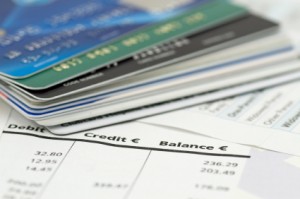 This question is surprisingly difficult to answer. Credit card companies have different policies, procedures, and even credit card reporting agencies. So there really isn’t a universal answer other than the fact that they usually report monthly. They usually report either at the end of the month or at the end of the billing cycle.
This question is surprisingly difficult to answer. Credit card companies have different policies, procedures, and even credit card reporting agencies. So there really isn’t a universal answer other than the fact that they usually report monthly. They usually report either at the end of the month or at the end of the billing cycle.
If you’re interested in getting a credit card, be sure to use the credit card chaser to see what different types of cards are available.
The reason the exact day of reporting is important to some people is that they sometimes wait until they pay off a big bill or close an account before applying for a loan. If one knows exactly when their credit card company reports to the credit bureaus, they can time their loan application perfectly. The other thing to bear in mind, though, is that the credit bureaus themselves are only required to update their information within 30 days of the time they get the report, according to Mortgage News Daily.
Are store or gas credit card companies required to report?
Store credit cards, like other credit cards, are not required to report to credit bureaus, but most do so willingly. These days, most store or gas credit cards are backed by major banks, and they usually report to credit agencies very quickly.
What sort of information do bank or store credit card companies report?
Whenever you open a new credit card account, whether it’s a bank credit card, a store card, a gas card, or just about any other type of credit card, the information that the account was opened usually goes to a credit bureau. The credit card company will also usually report what your outstanding balance is and whether or not you paid on time. Bank credit cards will also usually report the total amount of available credit, but store credit cards do not submit that information quite as often.
What information do bank credit card companies get from credit bureaus?
The most important piece of information that bank credit card companies, or any lender, can get is your FICO credit score. The FICO score gets its name from Fair Isaac and Company, the company that developed the software that calculates the score. The FICO score is a numerical assessment of someone’s total credit history.
Higher FICO scores generally equate to lower credit risks, so lenders tend to prefer to offer credit to those with higher FICO scores. Even so, there is no universal score that every lender looks for. Each credit card company or bank has their own set of policies and procedures for evaluating FICO scores and issuing credit.
The FICO score is used for more than just determining if someone qualifies for credit. The score can also be used to determine what the credit limit should be and, in some cases, what the interest rate should be.
Credit card companies and other lenders can pull a CRA report or other information from your credit report as well, including other differently derived credit scores, but the FICO score is by far the most widely used piece of information that the credit bureaus can provide.
Does every bank credit card report to every credit bureau?
Some bank credit cards send information to all three credit bureaus, but there are others who don’t. Some credit card companies may send credit information to just one credit bureau or two of them. Credit card companies also choose which credit bureau or bureaus in which they get their information.
For example, Citibank is generally known to prefer Equifax. This means that it is a safe bet that they will report to Equifax and seek information from Equifax, but this is still not a guarantee that they will not deal with the other two major credit bureaus.
What all this means to the consumer is that one credit bureau may rate their credit quite differently from another because they may have received different information. If you apply for a credit card that requests information from only one credit agency, and that agency happens to be one that has negative or incomplete credit information on you, it will not go well. Since it’s very difficult to keep track of which company reports to which bureau, especially if you have a lot of available credit, the best course of action is to just act responsibly and imagine that every credit transaction will be reported to all three bureaus.
If you are a responsible credit card user who is in the market for a new credit card, use the credit card finder to view online credit cards now!








